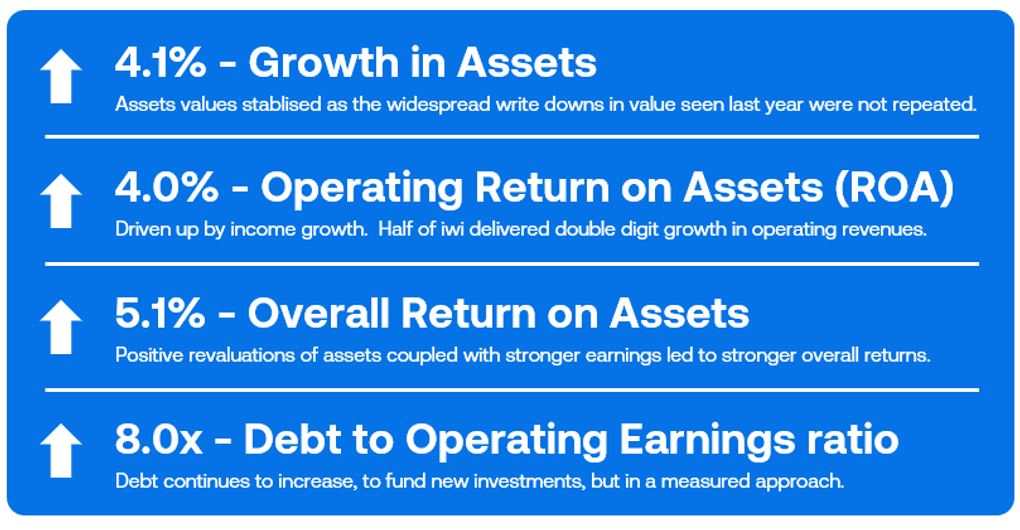Iwi outperform listed companies in 2023–24 returns, ANZ reports

Iwi and hapū-owned commercial entities have emerged from the recent economic downturn in a stronger position than many of New Zealand’s largest listed companies, according to ANZ NZ’s latest Te Tirohanga Whānui – Iwi Investment Insights report.
The report found that iwi businesses delivered a median overall return on assets of 5.1% for the 2023–24 financial year – nearly double the result from the year before and above the 3.8% median delivered by New Zealand’s largest NZX-listed companies (excluding banks and financial institutions).
“We’ve seen their various strategies of diversification evolve and be implemented. And it’s great to see the continuing strength and resilience of iwi through challenging times,” said David Harrison (pictured), ANZ NZ’s head of Māori relationships, in a media release.
The strong iwi returns come as the Reserve Bank intensifies its focus on Māori Access to Capital. A new RBNZ snapshot highlighted efforts by major banks to improve financial inclusion and reduce systemic barriers for Māori enterprises.
While the Māori economy reached $32 billion in GDP contribution in 2023, many Māori businesses still face challenges accessing funding – particularly those operating on whenua Māori, in rural areas, or within newer business structures.

Median results across the overall group of 38 iwi/hapū achieved in the 2023-2024 financial year.
Shift to direct and co-investments drives performance
The performance rebound followed a correction in 2022-23, when many assets were written down. But in 2023-24, iwi entities recorded a median 4.1% growth in asset values, supported by a significant shift in asset allocation strategies.
Most notably, iwi portfolios gradually moved capital out of cash and managed funds and into direct investments, co-investments, and private equity-style ventures. This reallocation appears to be paying off.
“Operating earnings are increasing, and – despite a general trend of increasing expenses – these earnings are growing faster than asset values,” the report said. This has pushed the median Operating Return on Assets up to 4.0%, marking the second consecutive year of gains.
Multiple income streams and stable debt support growth
The ANZ report, based on 10 years of data from 38 iwi and hapū commercial entities, found that iwi businesses are increasingly diversifying income streams and maintaining a stable approach to debt.
“We saw a widening and an increase in the number of income streams of many iwi/hapū commercial portfolios,” said Harrison. “Along with the general stabilising in asset values, these were a welcome shift and if they continue, they will help push iwi operating returns higher this year.”
Debt remains a key tool for development. The median debt-to-total-assets ratio remains stable at around 12%, with iwi debt levels generally well covered by asset value.
“It’s been a measured and considered approach. Overall debt-to-total-assets levels have remained stable, and while debt-to-earnings ratios have increased over time, they are within the ranges we’d expect, given the underlying sectors of these investments,” Harrison said.
Since 2016, the median debt-to-operating earnings ratio has increased from around 3.0x to almost 8.0x, with the number of iwi using debt doubling over that period.
Māori economy strengthens New Zealand’s future
Harrison said iwi and hapū businesses are vital contributors to the Māori economy and the wider national economic agenda.
“Iwi/hapū are significant contributors to the Māori economy and Aotearoa’s economic growth agenda and this growth is part of a much wider trend we’re seeing as Te Ōhanga Māori continues to develop rapidly.”
“When the Māori economy grows, it strengthens the whole New Zealand economy – laying the groundwork for long-term sustainability and shared prosperity,” he said.
ANZ reaffirms commitment through Māori business strategy
ANZ New Zealand maintains long-standing relationships with iwi, hapū, and whānau businesses and supports them through its dedicated Māori business team.
The bank’s Tākiri-ā-Rangi strategy outlines its Te Ao Māori vision through to 2040, reaffirming its commitment to helping Māori build a better future.
The Te Tirohanga Whānui report, released to iwi in February, continues to serve as a practical investment guide and benchmarking tool for iwi decision-makers navigating evolving market conditions.



